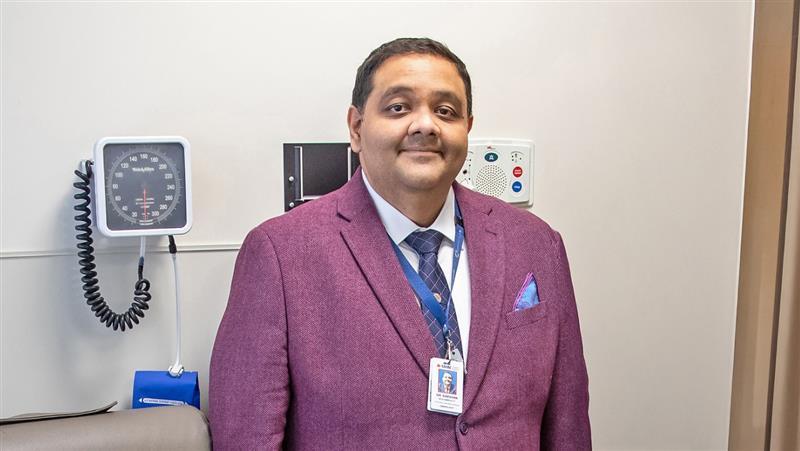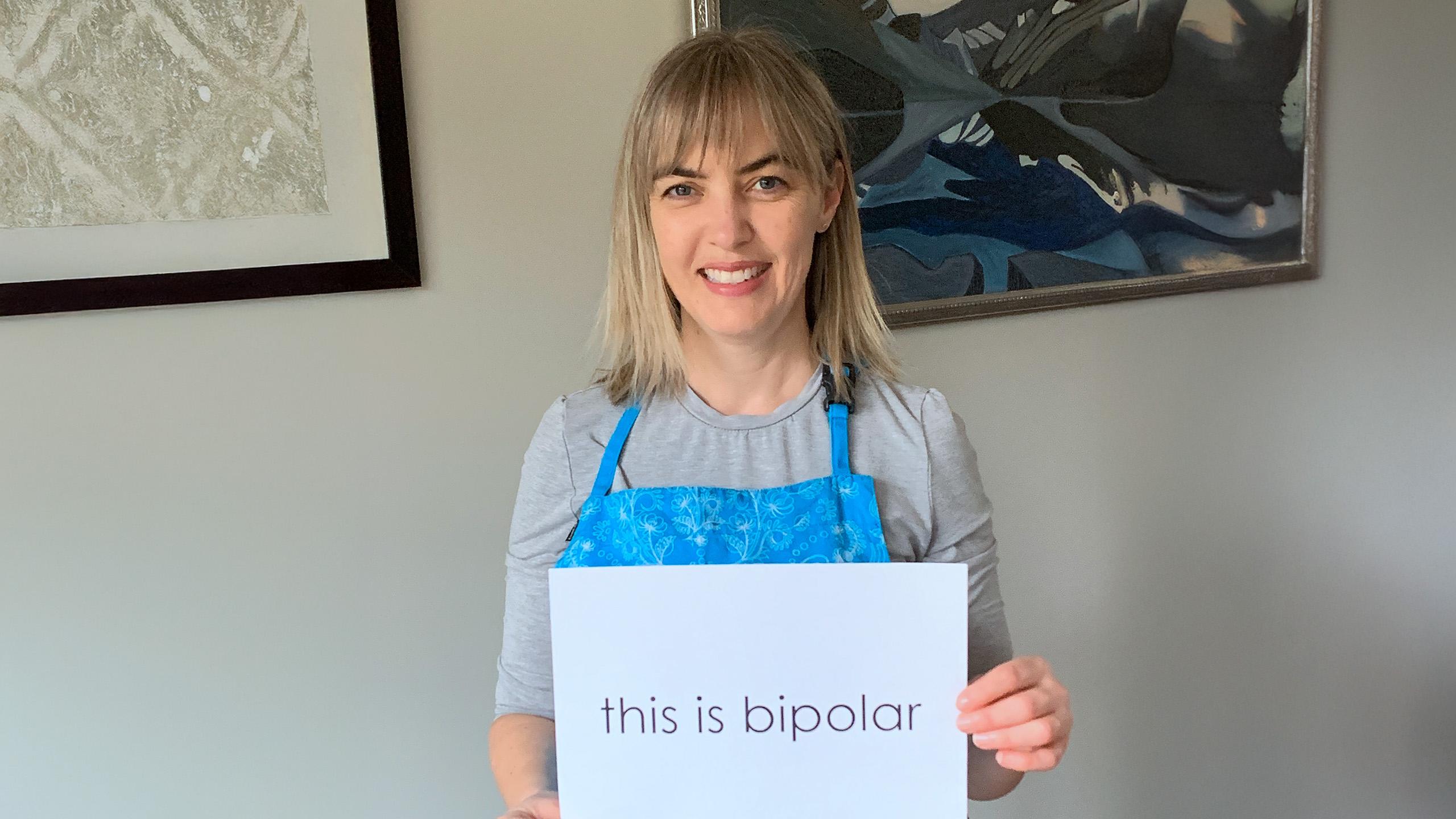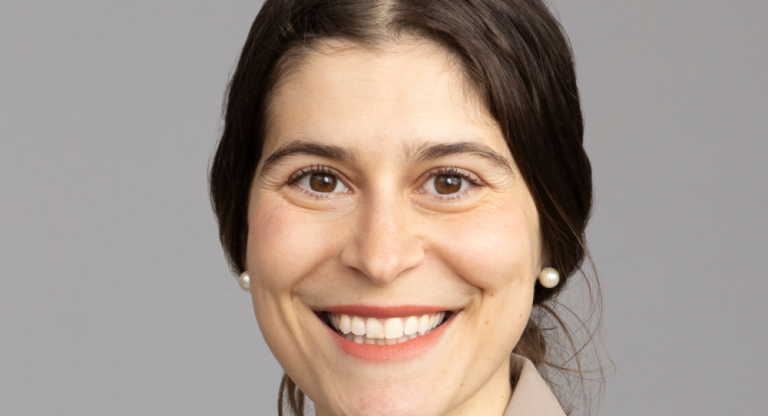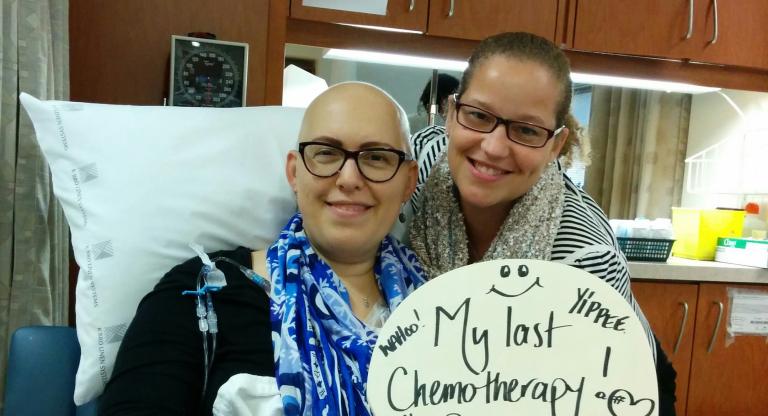Research at Sinai Health is changing what it means to be pregnant while living with diabetes

During Diabetes Awareness Month, stories like Alice Litosh’s highlight how far diabetes care has come — and how Sinai Health’s leadership in research and clinical innovation is transforming pregnancy outcomes for women living with diabetes. Once considered a major obstacle to motherhood, diabetes is now being managed more safely and effectively than ever before.
Alice has always known she wanted to be a mom. Yet, living with type 1 diabetes (T1D) for most of her life, she was worried about complications. Her concerns were valid: Women with T1D face increased risks during pregnancy, including preeclampsia, preterm delivery, stillbirth, and having larger babies, which can lead to a more difficult delivery, increasing the need for a Cesarean section.
As a nurse, Alice was well aware of the risks to herself and her baby during pregnancy. “I was very apprehensive,” she says. “Diabetes is not an easy condition. It's invisible, and during pregnancy, your hormones can play havoc on your sugars and your mood. This results in another rollercoaster ride for achieving well-controlled blood sugar levels.”
When Alice and her husband decided to start a family, her endocrinologist referred her to Dr. Denice Feig, head of Sinai Health’s Diabetes and Endocrinology in Pregnancy Program. A senior clinician scientist at the Lunenfeld-Tanenbaum Research Institute, Dr. Feig’s work is focused on improving care for women with type 1, type 2, or gestational diabetes by developing effective treatments and monitoring tools to help maintain healthy blood sugar levels throughout pregnancy.
At Alice’s first appointment with Dr. Feig’s team, she knew she was in good hands. “A lot of questions and unknowns were answered at that initial meeting, which helped alleviate a lot of anxiety and stress,” she recalls. “Dr Feig’s team just kept saying, ‘We’ve got this.’”
Advanced glucose monitoring to support healthier pregnancies
At that initial meeting, Dr. Feig went over Alice’s medical records and blood glucose data. Together, they discussed options for managing Alice’s diabetes during pregnancy. Alice also met with certified diabetes educators to help her learn more about how food affects her condition and how to adjust her insulin.
Alice learned how individuals with T1D have unique needs during pregnancy. Like her, many women have managed their diabetes most of their lives, but being pregnant brings new and different challenges. Pregnancy makes it more challenging to maintain glucose levels within the recommended target range — which is much narrower than for people with type 1 diabetes — to protect the baby from both immediate and long-term harm caused by levels that are too high or too low.
“It was as if I were learning how to manage diabetes for the first time,” she says. “I’d been living with diabetes for as long as I could remember, and I thought I knew my body. But I learned a whole backlog of new information.”
Under the supervision of Dr. Feig’s team, Alice utilized a closed-loop system that automatically adjusted her insulin delivery based on her glucose levels.
A closed-loop system links a continuous glucose monitor (CGM) with an insulin pump, automatically adjusting insulin delivery based on real-time algorithmic data. The CGM offers continuous blood sugar monitoring, reducing the daily burden of diabetes management and providing valuable insights for long-term care. Before becoming pregnant, Alice had been using a CGM and an insulin pump to manage her diabetes, so she felt comfortable with this system.
Dr. Feig has been at the forefront of research on how using a closed-loop system affects outcomes for pregnant women with T1D. As recently as last month, a study co-led by Dr. Feig showed that pregnant women with type 1 diabetes using a closed-loop system spent significantly more time in the pregnancy-specific glucose range than those receiving standard care.
“Using a closed-loop system to manage type 1 diabetes has revolutionized care for pregnant women,” says Dr. Feig. “It has improved neonatal outcomes.”
For Alice, the accurate monitoring meant peace of mind. “Having fact-based, evidence-based information helped me feel more in control,” she says. “Because the team provided me with sufficient resources to manage my blood sugar independently between visits, I didn’t obsess too much about micromanaging my sugars. This gave me the freedom to enjoy my pregnancy.”
Dr. Feig says her team’s standard of care has led to patients sleeping more soundly. “Many women say that they feel so much better, especially overnight, because they're not worried that they're going to wake up with their sugars too high or low,” says Dr. Feig.
Gratitude for a healthy labour and delivery
When it came time to give birth, Alice felt ready. She and Dr. Feig had worked together on a detailed delivery plan. “Dr. Feig gave me enough autonomy to manage my sugars and my insulin doses during labour and delivery, which was really important to me,” says Alice. “It was a complicated process; at every stage of labour, we had to change the insulin dosing. But the team had told me exactly when to change the settings at every stage, which made it very easy.”
Alice gave birth to a healthy baby boy at Mount Sinai Hospital on July 27, 2025. At more than 30 hours, the delivery was prolonged, but “the transition for the labour and delivery team was very smooth in terms of managing me as a diabetic patient,” she says.
Today, at home with her son Nicholas, Alice looks back on the experience with gratitude.
“If you have the right team to walk you through everything, to answer all your questions like Dr Feig’s team did with me, you can have a beautiful baby,” she says. “As much as it's overwhelming, it becomes very manageable.”
Thanks in large part to the support of donors, Dr. Feig’s team remains at the leading edge of diabetes care for pregnant women. “We have received support for diabetes and pregnancy fellowships,” she says. “This means fellows get to learn how to use these closed-loop systems in pregnancy. They get to see the research, help with the research, and understand how important the research is to our patients.”
That commitment to advancing care has had a profound impact on patients like Alice. “Dr. Feig’s team made me believe what I thought would be impossible, possible.”
You can help advance diabetes research for expecting mothers
As a leader in advancing diabetes care and treatment, Sinai Health is helping women living with diabetes navigate positive and safe pregnancies and deliver healthy babies. When you support diabetes care and research, you’re ensuring moms like Alice can enjoy the best possible care, and peace of mind, throughout their pregnancy journey. Donate Today.
The Diabetes and Endocrinology in Pregnancy program is part of The Frances Bloomberg Centre for Women's and Infants' Health at Mount Sinai Hospital — Canada's largest academic centre for women's and infants’ health and among the top five in the world.









